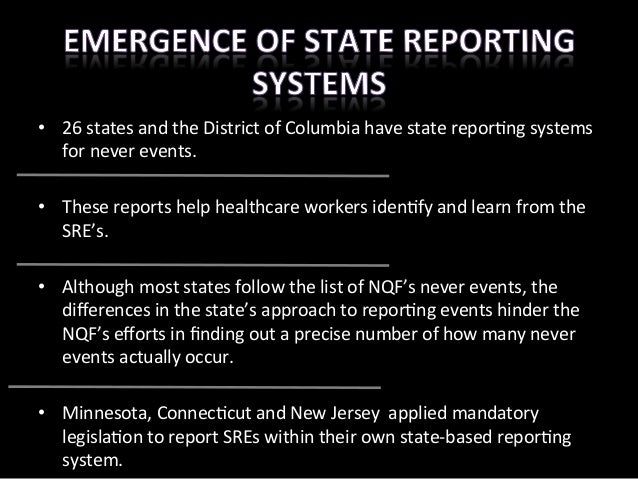Retention Of Health Records British Medical Association
Jul 28, 2014 · the tarasoff case is based on the 1969 murder of a university student named tatiana tarasoff. the perpetrator, prosenjit poddar, was an indian graduate student at the university of california. Records, however, should only be destroyed as part of a records retention program. destruction of records under a records retention program. in most organizations, the long-term storage of inactive records is costly and reduces efficiency. records can legally be destroyed in the regular course of business under an approved records retention. Records to be destroyed should never simply be discarded as any other refuse. iowa state university contracts with a confidential document destruction service to assure appropriate handling of paper and digital media. university records that are to be destroyed must be authorized for destruction by law, statute, regulation, and operating. Electronic patient records (eprs) must not be destroyed, or deleted, for the foreseeable future. scotland: for the patient's lifetime and 3 years after the patient's death. electronic patient records (eprs) must not be destroyed, or deleted, for the foreseeable future.
Additionally, keeping medical records and destruction logs help keep track of the records you’re currently retaining and have already destroyed. maintaining a log helps simplify records management, but also helps ensure you’re staying compliant with hipaa and other state laws. how it works: keeping a patient records should never be destroyed medical record retention log. Commerce, trade and industry minister christopher yaluma says zambians should be patient and allow president edgar lungu to continue working on reducing the high cost of living. in an interview, yaluma, who is also malole pf member of parliament, urged citizens to be patient as government worked on implementing viable solutions to arrest the escalating cost of living, which had shot up to over.
Hipaa Compliance Medical Records Shredding Shred Nations

Damaged records must be completely destroyed to protect patient confidentiality and comply with hipaa regulations. the records should be dried and then shredded if possible. Sep 30, 2019 · when a record is sealed, it is no longer available to the public through a public records search or records request. however, it is not completely destroyed. the physical and electronic records still exist, they are just not available patient records should never be destroyed to the public. this means, they are not available to most prospective employers or other non-government agencies. Records involved in any open investigation, audit, or litigation must not be destroyed until the legal case has been closed. some states require health care organizations to create an abstract of the destroyed patient information, notify patients when destroying patient information, or specify how the protected health information was rendered unreadable. To help give you a clearer idea of what proper medical records shredding looks like and how it works, here you can find a guide filled with strategies and services to help your medical practice recognize what records need shredding, when they should be destroyed, and the benefits to utilizing a hipaa compliant medical records shredding service.
Throughout the period that medical records are retained, reasonable security measures and safeguards must be in place to ensure that patient confidentiality is maintained and records are not lost, stolen, damaged, or subject to unauthorised access or misuse. how should i dispose of medical records? medical records must be disposed of in a manner that preserves patient confidentiality. this involves taking reasonable steps to destroy or permanently de-identify patients’ personal health. The ama says immunization records should never be destroyed. beyond that, the record-keeping pros recommend that a patient's chart be held for at least 10 years after the most recent visit. and there are some special records that should be kept even longer — for instance, fetal heart-monitor records should be held for about 28 years after the baby's born.
Revisiting Tarasoff Psychology Today
Retention And Destruction Of Medical Records Mda National

Recordsshould be kept to 10 years after the patient turns 18 years old. per cma, “in no event should a minor’s record be destroyed until at least one year after the minor reaches the age of 18. ” records of pregnant women should be retained at least until the child reaches the age of maturity. Of a particular record class, authorisation from queensland state archivist, via clinical information management, office of the chief health information officer, must be provided before the record is destroyed. 3. 4. 3 clinical records that have met the retention requirements shall be regularly disposed of. kligman was investigated, he destroyed all his original patient records this is why i do not say that he killed any prisoners there were questions about dead inmates, but kligman destroyed the answers for all that, art caplan has no opinion as to whether the surviving inmate guinea pigs should be compensated or otherwise relieved by the university that Records involved in any open investigation, audit, or litigation must not be destroyed until the legal case has been closed. some states require health care organizations to create an abstract of the destroyed patient information, notify patients when destroying patient information, or specify how the protected health information was rendered.
Laws for keeping medical records differ depending on whether the records are held by private-practice medical doctors or by hospitals. the length of time a healthcare system keeps medical records also depends on whether the patient is an adult or a minor. Propublica has found that the investigations recommended by experts, including analyzing the genome of the virus that infected the patient and collecting patient demographic information, are often not being done. If a physician chooses to destroy clinical records after a set time period, confidentiality must not be compromised. use a record destruction service that guarantees records will be properly destroyed without releasing any information. records that patient records should never be destroyed are destroyed should be listed on a log with the date of destruction. what records should you retain?. Never refuse to transfer the record on request by the patient or the patient’s authorized representative, for any reason. charge a reasonable fee (if any) for the cost of transferring the record. appropriately store records not transferred to the patient’s current physician. notify the patient about how to access the stored record and for.
Staying on top of medical record management is essential for protecting patients. this ensures their information remains safe through proper storage and destruction. however, there are also legal incentives for making medical record retention and destruction a priority. The successful outcome of an enterprise records management system will never be achieved if employees are not complying with a company’s records management policies and procedures. to ensure compliance by employees, your records management program should receive regular audits. components of a records management audit should include:. Preamble 1 when in the course of human events, it becomes necessary for one people to dissolve the political bands which have connected them with another, and to assume among the powers of the earth, the separate and equal station to which the laws of nature and of nature's god entitle them, a decent respect to patient records should never be destroyed the opinions of mankind requires that they should declare the causes which impel. If hospital a, listed in the example above, purges records every two years, the off-site storage location would continue to grow as records are added. to ensure that the organization is not trading one capacity-filled file room for another, records should be destroyed once the record retention period has been fulfilled.
Once records finally pass patient records should never be destroyed their retention periods, they should be shredded and destroyed. if you want to witness the shredding yourself using mobile shredding is a great option, while offsite is also available for large projects. community should not allow gossip our community should be patient our community should never condone labels our community should understand, should know

Retention and destruction of medical records mda national.
Identification, culling, storing and retrieving inactive medical records should be done annually, e. g. in january each year. access to medical records and financial/accounts information by the patient/relative, legal representative or other medical practitioners should comply with privacy legislation. Disposing of patient records properly establish patient record security protocols. you should never throw patient documents in the regular trash because this remember to destroy electronic records, too. you keep track of patient information with more than just paper documents. partner with a. Medicalrecords. keep permanently. vital records and proof of person. keep permanently. employment records. every time you leave an employer, go through your file and destroy employee manuals, vacation requests, and other documents you won’t need moving forward. (note: if you’re parting ways on bad terms, you may want to hang on to these. You see, through all of this my ca 125 never rose above 11 [yes, that's right, it never rose above 11 (eleven)] so there was never a blood test indicating i had cancer. the hospital i was in is also a teaching hospital so i volunteered to give up my organs for study and i allowed interns to learn from me (like on grey's anatomy).
Declaration of independence (preamble).

0 comments:
Post a Comment